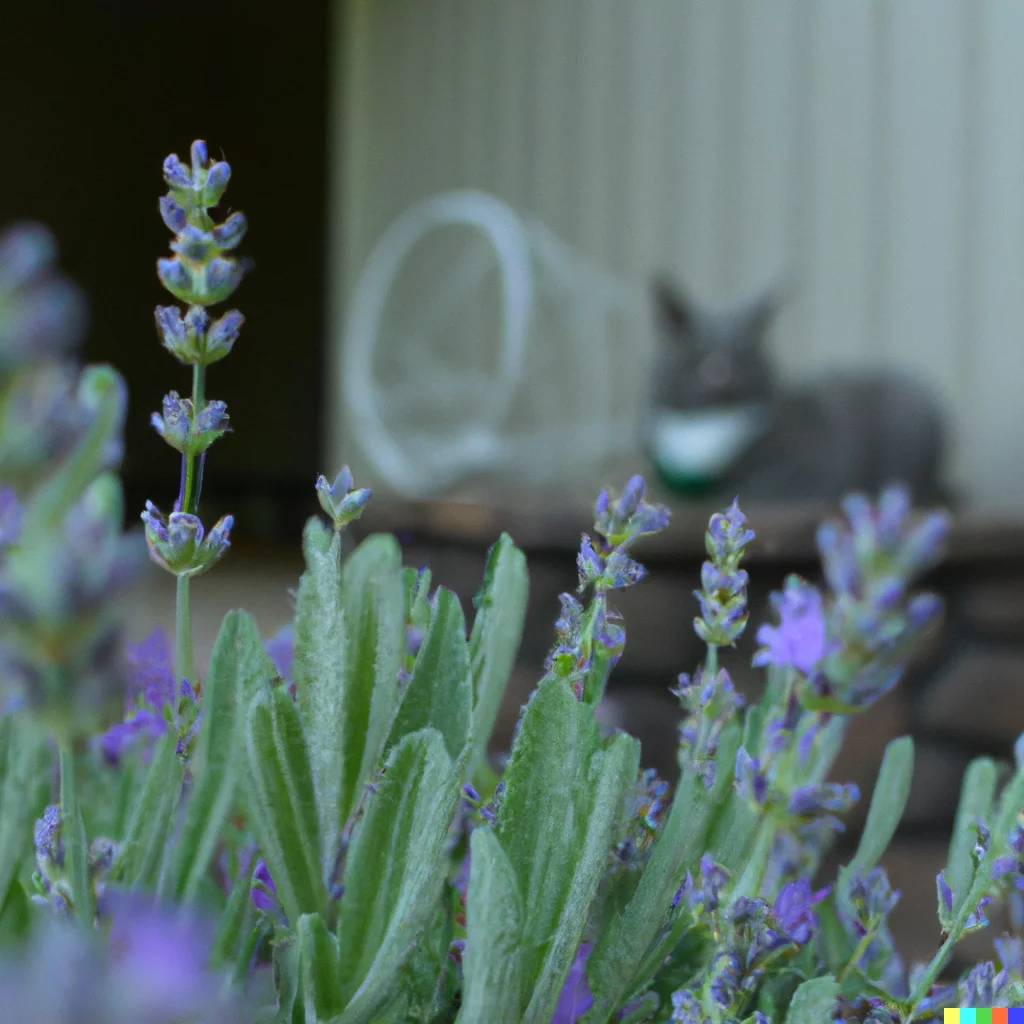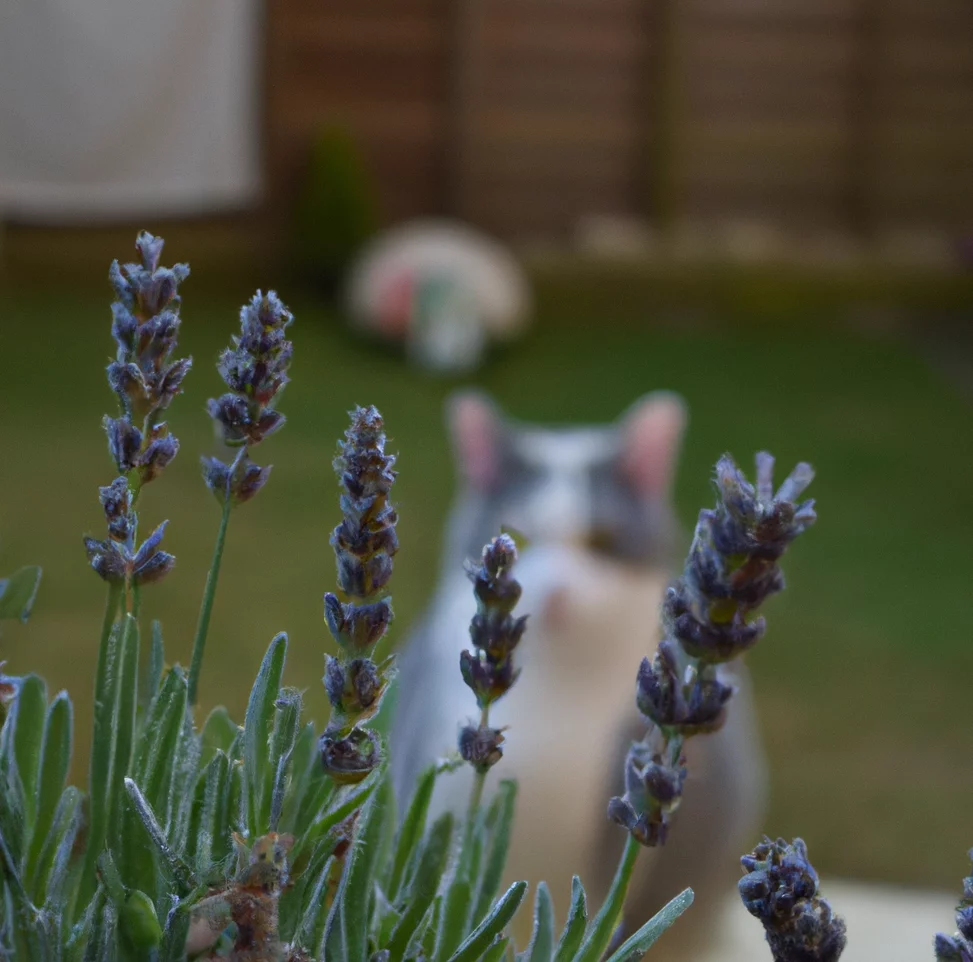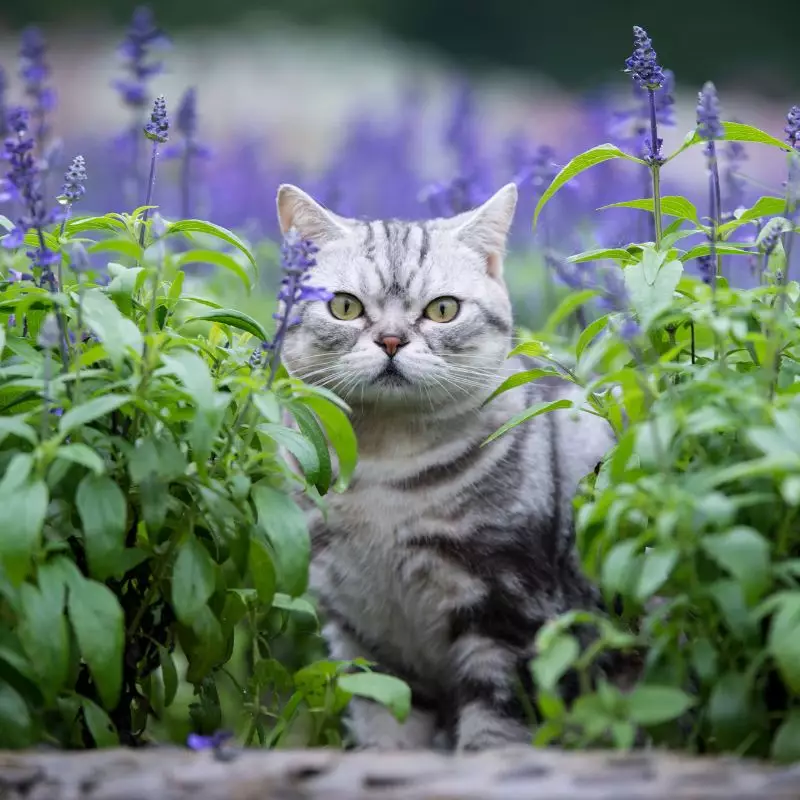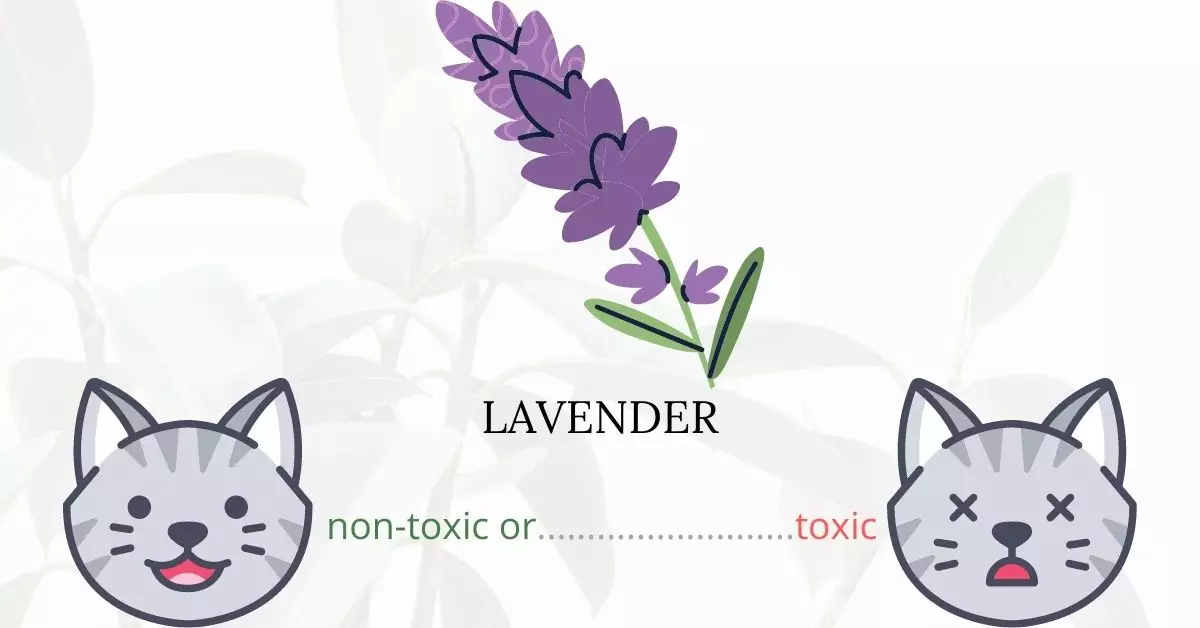While the lavender plant itself typically poses minimal threat when ingested by cats, lavender-based products, especially essential oils, can be harmful or even fatal. Essential oils are potent due to their high concentration, and cats lack the necessary enzymes to safely metabolize the volatile compounds found within them.
This article is written in collaboration with a team of experienced DVMs (doctors of veterinary medicine). Through their expert insights, we are able to provide accurate and up-to-date information regarding the potential risks associated with various plants, including lavender, and their effects on feline health. Additionally, our research encompasses high-authority sources such as ASPCA and PetMD to ensure a comprehensive understanding.
It’s worth noting that lavender essential oils are rapidly absorbed into a cat’s respiratory system, circulated throughout the body, and subsequently processed by the liver. Given a cat’s sensitive skin and the thinness of its epidermis, applying undiluted lavender oil can result in chemical burns and potential liver complications. Moreover, liquid potpourris often contain cationic agents and essential oils that can cause burns both on the skin and within the mouth of a cat. As a safety measure, it’s crucial to keep such products out of your cat’s reach.
Clinical Signs of Lavender Poisoning in Cats

When cats come into contact with, inhale, or consume lavender, they may present several clinical signs due to the specific compounds in the plant and their reaction to them. Below is a breakdown of each symptom, its cause, and the potential lavender interaction that triggers it:
- Loss of appetite: Often, the ingestion of unfamiliar substances can make cats feel uneasy or nauseated, leading them to avoid food.
- Nausea: Lavender contains compounds that cats may find difficult to digest, resulting in feelings of nausea.
- Vomiting: Directly related to the nausea, the ingestion of lavender can lead to an upset stomach, causing cats to vomit in an attempt to rid their system of the irritant.
- Drooling: This can be a cat’s immediate reaction to tasting or consuming something bitter or unpleasant, such as certain compounds in the lavender plant.
- Difficulty breathing: If a cat inhales too much of the potent aroma of lavender essential oils or chews on the plant, it can irritate their respiratory system, leading to labored breathing.
- Uncoordinated gait: Lavender’s compounds can interfere with a cat’s neurological functions temporarily, leading to a staggering or disoriented movement.
- Weakness: If the cat’s system is overwhelmed by the lavender’s compounds, they might experience an overall feeling of lethargy and weakness.
- Pawing at face and mouth: This is usually an indication of discomfort. If a cat has chewed on lavender, the taste or the feeling of the plant’s residues might cause them to paw at their face or mouth.
- Muscle tremors: In more severe cases, the neurological effects of lavender can lead to involuntary muscle tremors.
- Redness and dryness of lips, skin, gums, and tongue: Lavender can act as an irritant when in direct contact, causing inflammation and dryness in these sensitive areas.
Always consult with a veterinarian if you believe your cat has come into contact with or consumed lavender, as they can provide appropriate treatment recommendations.
First Aid and Treatment of Lavender Poisoning in Cats

The veterinarian will provide treatment based on your cat’s symptoms. Treatment may include intravenous fluid therapy and administering medications such as anti-emetics, antibiotics, and pain relievers among others.
Your cat may not be able to eat normally if he or she gets chemical burns from ingesting potpourri or lavender essential oil. In such circumstances, your veterinarian will implant a feeding tube into your cat’s stomach so that it may absorb nutrients while the burns heal.
Recovery from Lavender Poisoning in Cats

Your cat will eventually recover from lavender poisoning provided that prompt and appropriate treatment has been received. Give your cat time to rest in a quiet and comfortable space as he or she is regaining strength.
Prevention of Lavender Poisoning in Cats
Avoid using essential oils and potpourri products, or keep them in an area where your cat cannot access them. If your cat ingested a lavender plant in your home, remove it immediately and prevent bringing in another in the future.
If you love plants but have cats at home, check out these lists:





